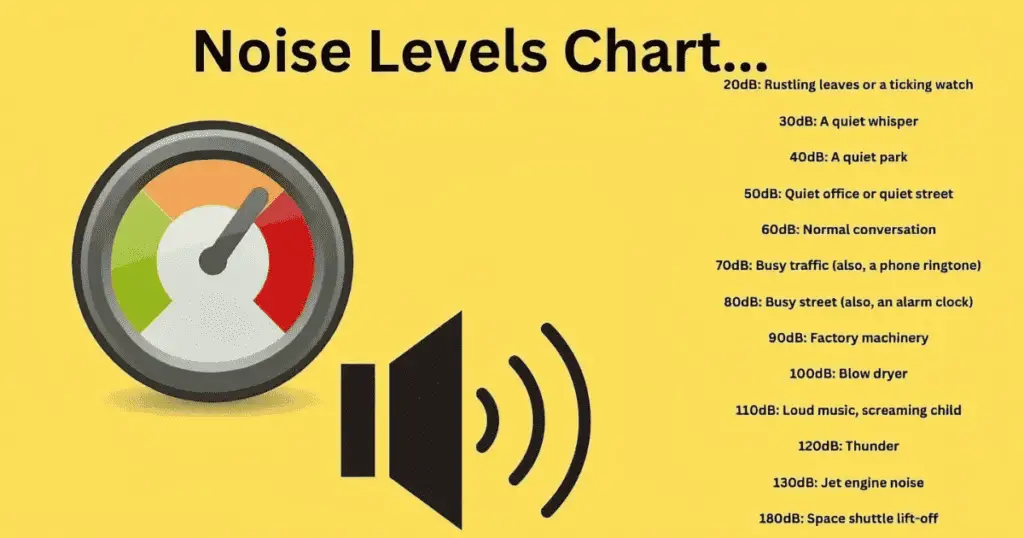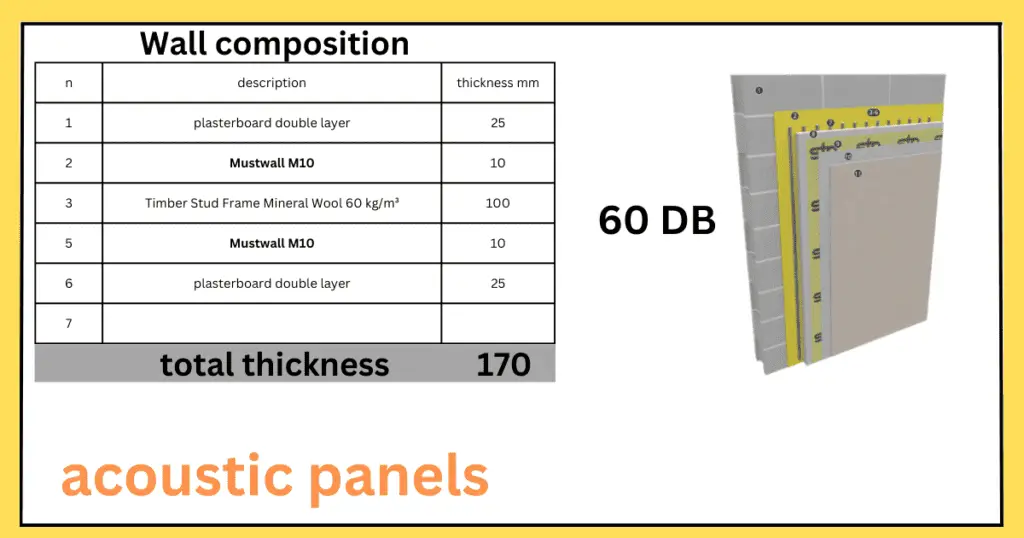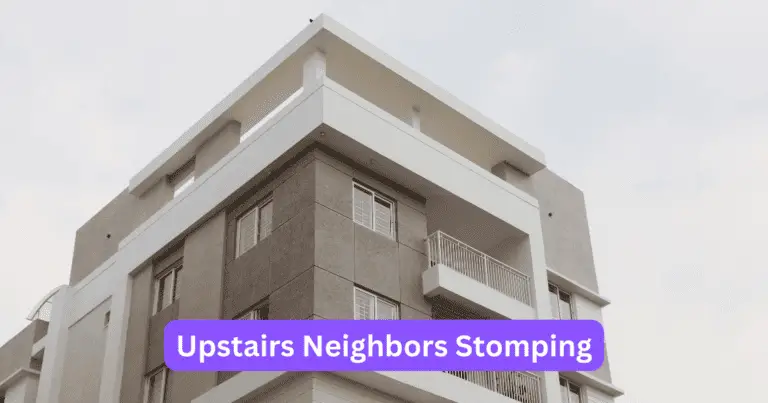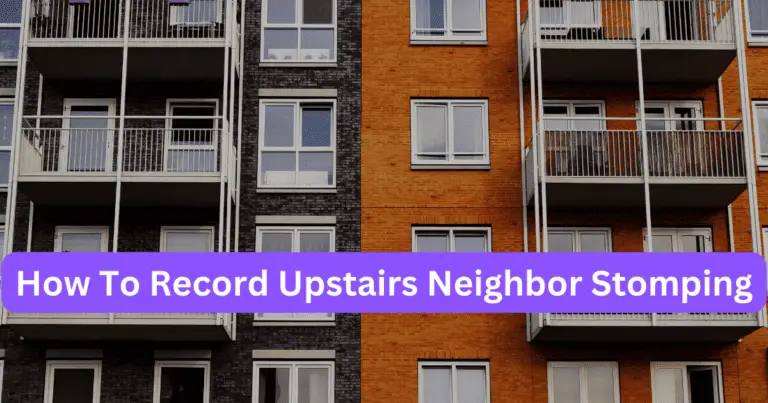I Can Hear My Neighbors Talking Through the Walls and Ceilings?

I can hear my neighbors talking through the walls. If my problem is the same, do you want to soundproof the walls of your house for your neighbors’ conversations and other sounds?
Then you have come to the right place for your, problem.
Research conducted in the UK, for instance, data indicates that up to 5 million people say they frequently have to put up with noisy neighbors.
At first, I also had the same, problem with the sound coming from the walls of my house.
I had to soundproof the walls of my house due to noise, from neighbors’ houses, traffic noise, and also many ambient noises and after much trouble today I solved my problem.
And hopefully, by adopting this method you will also eliminate your problem.
In this article, I’m going to tell, you exactly how to soundproof your walls. and some ideas for soundproofing your walls.
after reading this you’ll understand what kind of noise bothers you and learn different ways to minimize it.
So, let’s get started.
Why Can you hear your neighbor’s loud talk through the walls?
Before we get into the important stuff, such as different ways to soundproof, your walls from noisy neighbors.
you need to know why you hear noise through, your neighbors’ walls. and how it might affect you.
Since sound, can travel through solid materials, your neighbor’s sound travels through, the walls of your house.
The reason for this is simple, depending on the type of noise, you want to eliminate, and the walls, you want to soundproof, you’ll need to apply different soundproofing, ideas that we’ll discuss.
Four effective ways to soundproof, your room’s walls from noisy neighbors:
1. Level of the noise that’s bothering you
It can be very annoying if, you can hear your neighbors talking through your walls.
Luckily some solutions will help, you reduce the noise coming through your walls.
This is probably something that, will influence the choice of solution. Naturally, you will use less severe methods to soundproof, your house from your next-door neighbors.
However, you may need to use a stronger soundproofing material to block out guitar drums, or other musical sounds.
READ MORE: How to Soundproof a Room for Drums
So, how to assess the intensity of sound? Here’s a handy chart showing the loudness of various sounds, and their symbol values in decibels (dB).
This last point is critical. Most soundproofing materials have specifications for, how many decibels they can reduce or how many decibels they can block.

So, based on the chart above, you can estimate the sounds. you hear coming through your walls are about 60 decibels. However, my neighbors, loud drums, or music playing is about 115 decibels.
Knowing the approximate dB of the type of noise, you want to block from your neighbor, will help you best select a solution.
For example, a common way to soundproof a typical wall is to add plasterboard to the wall or use acoustic panels.
It is not a very complicated process and we will get to, it shortly. However, these panels generally, help reduce noise levels to about 60 decibels.

As a result, they can reduce conversion noise almost as much, but they can’t minimize loud noises very much.
With a little effort, you can minimize, the noise from your neighbors’ walls.
2. the sound do your neighbors make?
It, generally depends on what my neighbors, are doing that is causing the noise that bothers you.
If your neighbors are having a conversation, you can hear voices and laughter and if your neighbors are playing music, and watching TV, then you can hear TV music effects or any TV dialogue.
Or, I hear their cars when they come, and go from their house, and if your neighbors have a dog, the barking of that dog can disturb you.
Anyway usually, we hear two types of sounds around us so let’s know, what is the difference between these two types of sounds.
- Airborne noise is created by sound traveling through the air.
- Impact sound is produced when an object impacts another object causing sound vibrations.
A common example of airborne, noise that you experience in your neighbors is:
- The sound of their music or TV
- Singing practice sounds
- Conversation
- The sound of children screaming and crying
- Screaming and other similar sounds

(True sound waves of speech can easily travel through soundproof walls.)
Examples of noises that may annoy you from neighboring doors are:
- Hitting the wall with a hammer
- Other knocking sounds
- Sound of knocking
- Drums
What, you need to remember is that each type of noise behaves differently, and you can use, different soundproofing methods, to reduce, or prevent them.
3. Issues With Floor Noise?
It is very annoying if, you can hear the noise from the downstairs neighbors in your room through your floor.
If you can hear noise through, the floor of your room, maybe your downstairs neighbors are louder.
This is because sound travels through the air, and vibrates your self which is why you hear sound through yourself.
However, you may want to consider soundproofing to reduce, noise from your floor neighbors coming to your floor.
Firstly, you can use thick soundproof carpet on your floor, it will help a lot in reducing the noise, coming from your floor neighbors.
If your landlord has no objections, you can consider soundproofing the entire floor of your house.
Carpet Padding can be used over your new, or old carpet to make your home more soundproof.
4. Issues With ceiling Noise?
If you are bothered, by the noise of your upstairs neighbors in your apartment, you may want to consider soundproofing your ceiling.
You can put a ceiling under, your drywall to reduce noise from your apartment’s upstairs neighbors.
It’s the middle part of your house’s drywall, and drop ceiling that will help reduce, noise from your upstairs neighbors.
However, if you currently have a drop ceiling installed, and you still hear noise from your upstairs neighbors, or if you don’t like the drop ceiling, you currently have installed, you may want to consider installing a new, layer of the drop ceiling.
Hopefully, the noise from your upstairs neighbors will be, much less after that.
Are noise issues coming from the outside?
If you are bothered by the noise, coming from outside your home. there are things you can do to minimize, the noise coming from outside your home.
Noise coming from outside your home is usually caused by your neighbors driving their cars from their homes, or when they make noise on their grounds.
It is very annoying and it disturbs, you the most when you are trying to sleep or when you have a meeting, or when you want some quiet atmosphere in your home.
Below, we have discussed some techniques, which will help reduce noise coming from outside your home.
1. Soundproof Curtains
If you, want to soundproof your windows at a low cost then you can use soundproof curtains.
You can use, blackout curtains which work like soundproof curtains.
You can use thick curtains to help reduce the noise from outside your home, and soundproof curtains to help reflect echoes in your home.
These soundproof curtains are not that difficult to install but they are very thick and heavy so you can use them around your windows or doors.
You can use the designer curtains of your choice or in case your curtains are torn or damaged in any way you can easily replace them.
While curtains generally don’t reduce noise from outside your room very well, they can help reduce echoes in your room.
But if you feel, you want something within your budget to reduce the echoes in your room, you can use curtains.
A good low-cost way to sound your windows is to seal the cracks in your windows using weatherstripping.
Usually, most of the time it is found that the sound is heard due to small cracks in the window.
Weatherstripping and caulk can help you get out of this problem.
2. Soundproof Doors
If you hear outside noise, through your door and it bothers you, you may want to consider soundproofing your door.
It is usually found that the ends of your door are cracked and unsealed.
Even a small crack in the side of your door can allow outside noise to enter your home.

You can also use Weatherstrips if you want to seal cracks around your door.
Hopefully, the sound coming through the door of your house will decrease.
4 Ways can I soundproof walls from noisy neighbors?
Before moving on to the next step, it’s important to note that we will cover four techniques below to soundproof your home from your neighbors.
The noise from your neighbors should be significantly reduced, hopefully.
Let’s Get Started!
1. Increase the wall’s ability to absorb sound
To reduce, the sound coming through the walls of your, house you need to improve your walls so that your walls can absorb, the sound.
You can soundproof the walls of your home using layers of drywall panels and acoustic foam.
Another way is to use some soundproof material such as fiberglass inside the stud wall to help dampen the sound.
But how can you soundproof your walls if you live in a rented house?
There are other ways you can improve your walls so that sound doesn’t travel through your walls.
For example, you can use sound group curtains on your walls and you can forget about canvas painting your walls because canvas absorbs sound and will help reduce the noise coming through your walls.
They won’t reduce noise much but they will make your room look better and more attractive.
Below is a video showing how much soundproof curtains, can reduce noise.
2. Use furniture and decor to dampen the impact of the sound
You may hear some sounds, that are not so disturbing like the sound of washing dishes, very muffled music, or the sound of the alarm clock.
Such sounds are usually called airborne, which means that such sounds travel through the air. This kind of sound softens, the sounds of your room furniture, or your walls.
So how can you reduce, the noise you expect from, your neighbors?
There are many ways, to minimize such noise.
Rearrange your furniture.
Using furniture is a very good, and very effective way to reduce noise.
Hopefully, it will make a big difference after, you rearrange, your furniture. Placing furniture such as sofas, chairs, or your bookshelf towards the wall where, you hear the sound will help, reduce the noise.
If you, can hear noise from the walls of your bedroom, you should move your bed as far away from, the wall as possible.
However, if you work from home, and are bothered, by such mild noises from your neighbors, move your desk to a quieter side of, the room.
Install soundproof curtains.
soundproof curtains will help reduce some of the light noise, and the outside noise. If your neighbors make any light noise in their yard, you can use soundproof curtains.
If you have large furniture in your room, use it to reduce the noise. Place your furniture towards your affected wall meaning the wall you hear the noise from.
Such as books, sofas, and many other large pieces of furniture. You can use a white noise machine.
White words can mask several other words using it, hopefully, you will understand the difference. It also has a mobile app and a computer app that, you can use.
3. Seal gaps in walls with acoustic sealants
Your biggest challenge when reducing airborne noise in your home is an entry point, such as a crack, through which sound can enter your home.
So, as the first step, check the wall for any gaps, cracks, or holes. You can fill in sound-absorbing acoustic sealant to seal the cracks. It will help reduce noise in your home.
Acoustic sealant generally works like other caulk. Maybe you’ve used it before.
But the only difference is that acoustic sealant is a better soundproof material.
With the right sealant and a little effort, you can create a peaceful atmosphere, in your home.

Here’s a great video demonstration of how to use acoustic ceilings over a layer of drywall in your home.
4. Add mass to the wall
Adding mass to your walls is most effective especially when you’re looking to reduce, loud noise.
This is the most difficult, method to soundproof, your walls, from the neighbors, but it is also the most effective method.
You may have noticed in general that sound travels very easily, through thin objects or materials.
If you, add mass, to the wall, you will greatly prevent the sound from passing through the wall, which will ultimately reduce, the impact of the sound on the wall.
However, the mass usually, absorbs the sound waves and helps reduce, them before they reach the other side of your wall.
Hopefully, this will create a barrier through your walls, to reduce any noise from your neighbors.
You can add mass, to your walls or thicken your walls by adding drywall on top of your, existing walls.
Hopefully, this will reduce some of the noise from, your neighbors.
drywall will prevent, neighbors’ noise from entering your home through your walls, and reduce some of the noise.
With proper planning, and some effort you can block out some noise, and create a peaceful environment, by adding mass to your, walls.
What if you have a problem with upstairs neighbors?
If you are having a problem, with noise from the upstairs neighbors.
Firstly, soundproofing your house from your upstairs, and neighbors depends on many factors. For example, if you live in a rented building you’ll need permission, from your landlord to, make changes.
Usually, if you live in an apartment you might hear noise from the work of your upstairs neighbors which is very annoying.
Especially, when you are trying to sleep or have a meeting, or you want a peaceful environment in your apartment.
Usually, in this case, you can think about soundproofing, the ceiling of your room.
And how do you soundproof the ceiling of your room? It is good to say that there is a simple way to soundproof the ceiling of your room, for example, you can use acoustic drop ceilings on the ceiling that you currently have.
Acoustic drop ceilings generally help soundproof your home in two ways.
The first is to absorb sound waves and prevent sound from bouncing around the room. The second is to prevent sound waves from traveling.
Hopefully, that will eventually help you reduce the noise from your upstairs neighbors a bit.
FAQ: Step By Step Process To Stop My Neighbors Talking Through Walls | Conclusion
I hope now you understand how to soundproof, your house from your neighbors. But you can now judge the above methods, and choose the way you want to use to soundproof your house.
Although we generally cannot always control the level of noise in our environment. But there are a few things, we can try to reduce the impact, of noise in our daily lives. If you still hear noises, you can talk to your landlord.
If you live in a multi-story apartment, you should also be mindful of your floor neighbors, so that they don’t have this, problem because of you.
However you think about reducing noise at home, I hope you can finally reduce, the noise a bit and create a quiet and peaceful environment.
Q.1 Why can I suddenly hear my neighbors?
Ans: There could be many reasons why you suddenly hear noises from your neighbors.
For example, it may be due to any changes in your apartment such as construction work. Or maybe your neighbors bought a sound system like a home theater.
You may want to think about soundproofing to reduce the noise you expect from these neighbors.
If after that you hear noise from your neighbors. You can talk to your neighbors or even the owner of the building.
Q.2 I can hear my neighbors talking through the ceiling.
Ans: If you, can hear noise from your neighbors through the ceiling, you may want to consider soundproofing your ceiling to reduce, the noise.
Q.3 I can hear my neighbors talking through the floor.
Ans: If you, can hear your neighbors talking through the floor, it is very annoying and you may want to consider soundproofing, the floor to reduce this noise.





